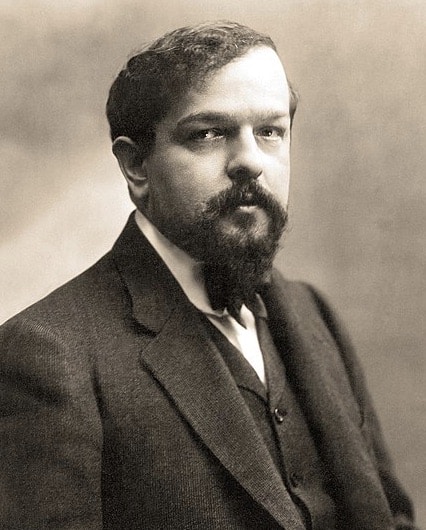
Claude Debussy was born on August 22, 1862 in Saint-Germain-en-Laye, a suburb of Paris, France. He displayed musical talent from a young age and began his formal musical education at the Paris Conservatoire at the age of 10. He began music studies with a focus on the piano, but soon discovered, to the dismay of his Conservatoire professors, that he was more interested in exploring innovative composition. While at the conservatory, he came under the influence of several important composers and teachers, including César Franck and Jules Massenet.
In his early years, Debussy’s music was influenced by various styles including Wagnerian chromaticism and the Russian school of composers like Rimsky-Korsakov. However, as he matured, he developed his own unique style that moved away from traditional forms and tonalities. He sought to capture fleeting moods and impressions in his compositions, much like the visual artists of the Impressionist movement.
In 1890, he composed Suite Bergamasque that includes Clair de Lune, the piece that many associate with the emergence of the French impressionist style. In 1894, he composed the Prélude à l’après-midi d’un faune, considered to be his first orchestral masterpiece. This was followed by Nocturnes in 1897–1899 and La mer in 1903–1905. However, Debussy was slow to find his niche and he didn’t achieve international recognition until the production of his only opera, Pelléas et Mélisande.
Debussy’s music often employs whole-tone and pentatonic scales, exotic harmonies, and innovative orchestration techniques. His works evoke imagery and atmosphere abandoning strict narrative structures and paving the way for innovation by later composers, including Ravel and Stravinsky.
Debussy’s later years were marked by health issues, including colorectal cancer. He continued to compose even as his health declined, and he passed away in Paris in 1918. His legacy remains a vital part of classical music history, and his contributions to the development of modern music continue to be widely celebrated.
